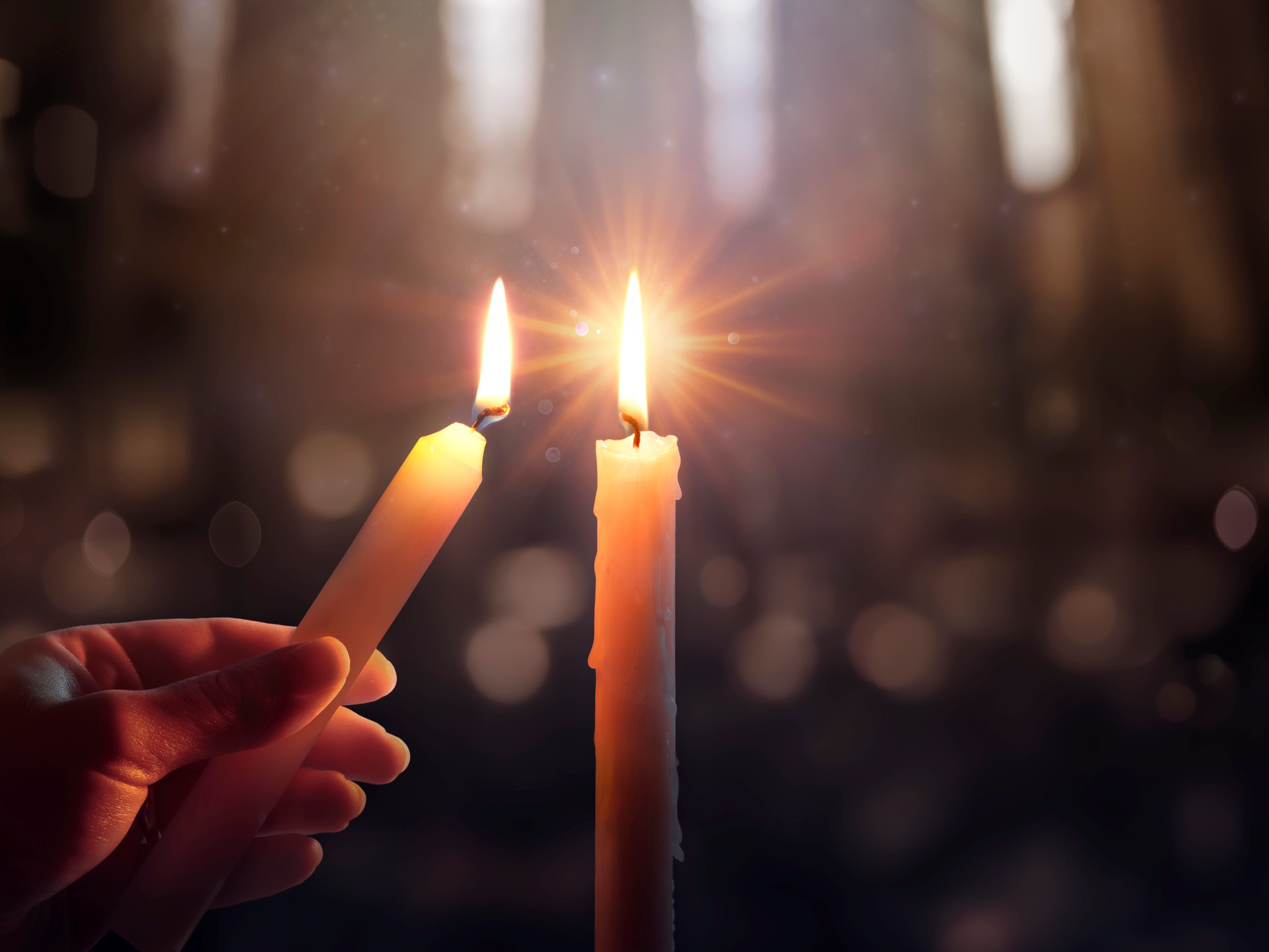Chanukah=Education?
This Dvar Torah was given by Chava Mann, one of CAJE’s newest board members, at our most recent CAJE Board meeting. Chava is a chemical engineer with a master’s degree in Bio molecular Chemistry from NYU. She has been always very passionate about Jewish education in general and for women in particular, and has organized and frequently taught seudah shlishit classes for women for the past 12 years as well as Rosh Hodesh lunch and learns. She has also been serving on the Board of Directors of Yeshiva Toras Chaim Toras Emes since 2016. Her 5 children attend Toras Emes (Miami), Beis Yaakov (Miami) and Yeshiva High School (Boca).
BS”D
Thank you all for allowing me the honor to deliver a short and hopefully sweet Torah reflection on Chanukah.
First, the basics… the holiday is named Chanukah because it means “Re-dedication” or “Consecration” and refers to the need to rededicate and re-consecrate the Temple in Jerusalem after the Greeks used it for idolatrous worship.
Back in 168 BCE, the Greek empire took over and defiled our Temple in Yerushalayim / Jerusalem and consequently, we Jews were exiled in our own land and cast into a state of Spiritual Exile.
After the miracle that we sing about during the eight days of the holiday in the “Al HaNissim” prayer (where it mentions that the few conquered the many… a little cruse of oil burned for 8 days, and so forth), we were able to re-dedicate the Temple to its original purpose: Service to Hashem.
Rabbi Shimshon Rafael Hirsh (19th c Germany) explains that another cognate meaning of the root of the word Chanukah is “chinuch” (education) and the core of the celebration on Chanukah is the concept of education.
What is Chinuch?
Rabbi Kalonimus Kalman Shapira (the Piasenczno Rebbe, 1889-1943) offers us a powerful and very relevant definition of Chinuch.
[Known as the Warsaw Rebbe later in life, Rabbi Shapira spent his last years in the Warsaw Ghetto and then was murdered by the Nazis sometime after the Warsaw Ghetto revolt. His inspiring writings, moving discourses, and Torah thoughts were stored in milks jars, sealed and buried in the ground of the ghetto. In the 1950s, a construction worker who was cleaning up the rubble from the ghetto’s destruction discovered them. Entitled Aish Kodesh / Sacred Fire, his recovered manuscripts were translated and published.]
Before the war, as a Rebbe in Pieszecno, Poland, he oversaw education and showed exceptional sensitivity to his students. He recognized the challenges of modernity and secularization facing Jewish youth at the beginning of the 20th century, and his essays convey ideas that are very relevant to us today!
He wrote in the introduction to his book Hovas HaTalmidim / the Students’ Responsibilities that Chanukah and Chinuch share the same essence.
What is the shared essence between Chanukah and Chinuch? To bring potential into reality -- The Temple to its Service of Hashem, A child to grow up to be an enthusiastic, passionate Jew.
To further support this idea, we are commanded in the Talmud to light the candles in a progressive fashion, adding one each day, increasing kedusha / holiness and ascending toward the fulfillment of potential.
Almost 100 years ago, Rebbe Shapira argued that Chinuch is not only about classroom teaching. Our children cannot overcome the challenges of the times solely in the classroom.
The way we can best change and impact our youth is by touching their precious and holy neshamot / souls.
We -- the parents, the Rabbis, the Teachers and the Community Leaders -- are the shamash / servant candle in the Chanukkiyah / Chanukah Menorah.
Our job is to light the flame of the candles -- our children, our students, our youth —by helping identify their potential, allowing them to reach independence while they live with us, and then stepping back and letting them spread their light on their own.
As the Shamash / the servant candle that lights all the others, our job is spiritual leadership that must result in more light and more passion for Yiddishkeit or Jewish living with purpose.
We are urged to find additional paths beyond classroom education, because Jewish Education needs to be dynamic, engaging, and interactive.
To conclude: Chinuch / Education is a start! Our long-term goal is to form passionate Jews, lifelong learners, and future community leaders.
In a world that today looks pretty dark, may we be like the Hashmona’im/ the Maccabees who, with lots of help from Shamayim/ the Heavens, brought back the holy service of Hashem to the Jewish People.
As suggested by Rabbi Shimshon Rafael Hirsh, Chanukah offers us eight days to reflect on the subject of Chinuch / Education-- on what we can do better for our children, our youth and the future of the Jewish People.
Let us bring back the light of the candles into our own personal sanctuaries-- our homes, our schools, our communities.
May Hashem Bless Us All With an Illuminating and Happy Chanukah!!!
~ Dedicated with great Hakarat HaTov / Much Gratitude to Rabbi Kalman Baumann of Yeshiva Toras Emes for his consistently inspiring thoughts on chinuch.
Shabbat Shalom






